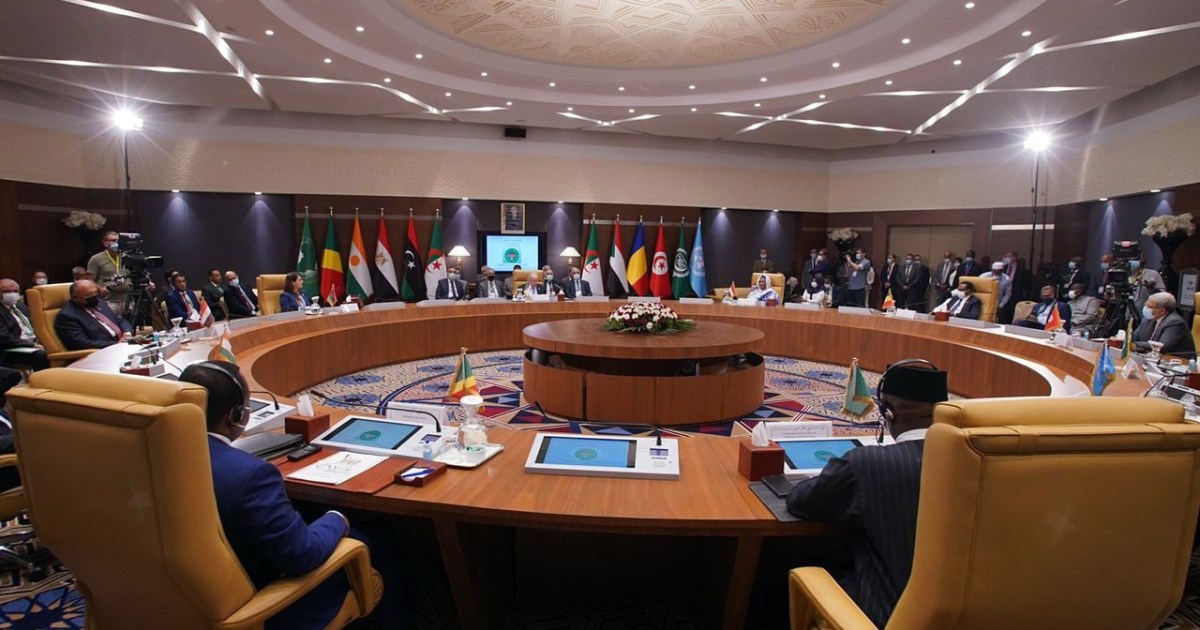At the conclusion of their meeting in Algeria, the foreign ministers of the neighboring countries decided to send a ministerial delegation to Libya with the aim of assessing the course of the political process and intensifying communication with all foreign parties to emphasize the inevitability of a political solution.
The final statement included 16 points, including the call for the withdrawal of all foreign forces, foreign fighters and mercenaries from Libya, and the reactivation of the two sub-committees on politics and security.
He called on the foreign ministers of the neighboring countries of Libya to fully involve the neighboring countries in the talks or the tracks that are launched.
The statement also called for activating the quadripartite agreement between Libya and neighboring countries to secure the common borders, and the foreign ministers of the neighboring countries agreed to hold the next meeting in Cairo.
For his part, Algerian Foreign Minister Ramtane Lamamra said in a joint press conference with his Libyan counterpart Najla Al-Manqoush that the importance of the outcomes of the meeting hosted by Algeria lies in influencing the international approach to the nature of the desired solution to the Libyan crisis, which is based on the sovereignty and political independence of the state.
In turn, the Libyan Foreign Minister announced, during the conclusion of the work of the ministerial meeting of the Libyan neighboring countries held in Algeria, the decision to activate the quadripartite agreement between Libya and neighboring countries to secure the common borders.
In light of great consensus and unified positions on the need to strengthen efforts to support and support sisterly Libya in embodying the priorities of the transitional phase, the work of the ministerial meeting for Libya and neighboring countries was concluded this evening with the adoption of a final statement that outlined a number of practical steps that will enable us to effectively contribute to this path.
pic.twitter.com/vopVOxqaO0
— Ramtane Lamamra |
Ramtan Lamamra (@Lamamra_dz) August 31, 2021
Al-Manqoush stressed the importance of concerted efforts by neighboring countries to achieve stability in Libya.
Months ago, Libya witnessed a political breakthrough. On March 16, it received an elected transitional authority that includes a government of national unity and a presidential council to lead the country to parliamentary and presidential elections.
Constituencies
In a parallel context, the Libyan House of Representatives spokesman, Abdullah Blehaq, said that the House discussed, in its session in Tobruk, the issue of electoral districts and the distribution of seats to start the draft law to elect the next House of Representatives.
Blihaq told Al-Jazeera that what was presented in the session were mere ideas about the distribution of electoral districts and seats, and that they did not live up to the level of a draft law.
He pointed out that a number of parliamentarians prefer the House of Representatives elections law issued in 2014, with some amendments to it.
Blihaq justified this approach by saying that members of Parliament fear that sharp disagreements may erupt over the distribution of districts and seats, making it difficult to reach consensus on the upcoming Parliament election law.

